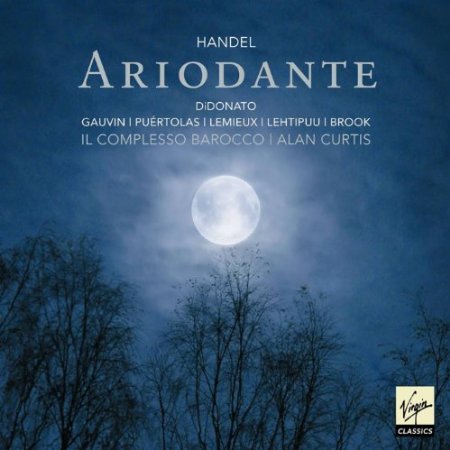HANDEL Ariodante
Joyce DiDonato is wonderful in the title-role of one of Handel’s finest operas
View record and artist detailsRecord and Artist Details
Composer or Director: George Frideric Handel
Genre:
Opera
Label: Virgin Classics
Magazine Review Date: 08/2011
Media Format: CD or Download
Media Runtime: 193
Mastering:
Stereo
DDD
Catalogue Number: 070844-2

Tracks:
| Composition | Artist Credit |
|---|---|
| Ariodante |
George Frideric Handel, Composer
(Il) Complesso Barocco Alan Curtis, Conductor Anicio Zorzi Giustiniani, Odoardo, Tenor George Frideric Handel, Composer Joyce DiDonato, Ariodante, Mezzo soprano Karina Gauvin, Ginevra, Soprano Marie-Nicole Lemieux, Polinesso, Alto Matthew Brook, King of Scotland, Bass Sabina Puértolas, Dalinda, Soprano Topi Lehtipuu, Lurcanio, Tenor |
Author: Richard Lawrence
Ariodante is an excellent starting-point for anyone new to Handelian opera. The plot is strong and reasonably credible. The drama moves swiftly, too, Handel sometimes confounding one’s expectations: Ginevra is so incensed by Polinesso’s advances that her aria kicks off with no instrumental introduction, while the da capo reprise of the first duet for Ginevra and Ariodante is charmingly interrupted by the King.
Handel revived the opera in 1736, with many changes. This recording is of the version as first staged, with a couple of exceptions: the King’s aria in Act 2 is replaced by a siciliano; the dances at the end of the same act are dropped in favour of the sequence later transferred to Alcina; and the Gavotte in Act 3, already heard in the Overture, gives way to a Rondeau. All these pieces were discarded before the premiere.
Ariodante is sung by the wonderful Joyce DiDonato. “Con l’ali di costanza” is taken at quite a lick: fair enough, as the reference is to Cupid’s wings. In “Scherza infida”, with its mournful bassoon, DiDonato has the full measure of Ariodante’s despair. Only “Dopo notte” fails to impress fully, partly because the violins’ attack on the first note is rather weedy and partly because the reprise is more rewritten than embellished.
There are no weaknesses in the rest of the cast. Alan Curtis directs with his customary stylishness and, in the “Ballo di ninfe…”, a nice touch of rustic phrasing. The harpsichord could be more prominent but otherwise the balance is good.
Discover the world's largest classical music catalogue with Presto Music.

Gramophone Digital Club
- Digital Edition
- Digital Archive
- Reviews Database
- Full website access
From £8.75 / month
Subscribe
Gramophone Full Club
- Print Edition
- Digital Edition
- Digital Archive
- Reviews Database
- Full website access
From £11.00 / month
Subscribe
If you are a library, university or other organisation that would be interested in an institutional subscription to Gramophone please click here for further information.




